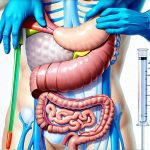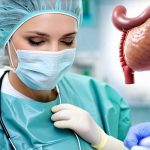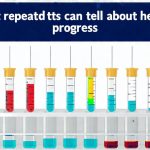Surgery, even when successful, represents a significant physiological stressor on the body. It’s more than just cutting and repairing; it’s a disruption that reverberates throughout all systems, including the often-overlooked but crucially important gut microbiome. While most focus understandably remains on surgical site healing and pain management, many patients find themselves experiencing digestive distress after surgery – bloating, constipation, diarrhea, nausea, or a general feeling of “offness” in their gut. This isn’t necessarily a sign of complications, but it’s incredibly common and can significantly impact recovery and quality of life. Understanding why this happens is the first step towards managing it effectively.
The connection between surgery and gut health stems from several interwoven factors. The surgical process itself—anesthesia, pain medication (especially opioids), altered dietary intake, inflammation, and stress—all contribute to changes within the digestive system. These changes can range from temporary imbalances in the gut microbiome to more persistent issues that require intervention. It’s important to remember that a healthy gut isn’t just about digestion; it plays a vital role in immunity, mental health, and overall well-being, making its disruption particularly impactful during a vulnerable recovery period. This article will explore the reasons behind these post-surgical gut disturbances and offer insights into potential management strategies.
Why Surgery Impacts Gut Health
The gut microbiome, comprised of trillions of bacteria, fungi, viruses, and other microorganisms, is incredibly sensitive to change. Surgery throws multiple wrenches into its delicate balance. Anesthesia, while essential for pain control during the operation, can significantly alter gut motility – the way food moves through the digestive tract. This slowing down or speeding up of digestion creates an environment where certain bacteria thrive over others, leading to dysbiosis, an imbalance in the microbiome. Furthermore, the stress response triggered by surgery releases cortisol and other hormones which can directly impact gut function and microbial composition. Understanding how gut trouble can be exacerbated during stressful periods is vital for recovery.
Pain medication, particularly opioids prescribed post-operatively, is a major contributor to digestive issues. Opioids are notorious for causing constipation because they slow down intestinal contractions. This prolonged transit time allows more water to be absorbed from the stool, making it harder and more difficult to pass. Beyond constipation, opioid use can also alter gut permeability – often referred to as “leaky gut” – increasing inflammation and potentially leading to systemic immune activation. It’s a vicious cycle: pain leads to medication, medication disrupts gut health, disrupted gut health can worsen inflammation and even amplify the perception of pain.
Finally, many surgical protocols involve pre-operative bowel preparation (bowel prep), which often includes strong laxatives or enemas designed to clear the digestive tract. While necessary for some procedures, bowel prep drastically reduces the number of beneficial bacteria in the gut, essentially “resetting” the microbiome and making it more vulnerable to imbalances post-surgery. It’s like wiping the slate clean, but then struggling to repopulate it with a diverse and healthy microbial community. Knowing how to reset your gut can be especially helpful after such a disruption.
Post-Operative Gut Issues: Common Symptoms and Causes
The range of gut issues experienced after surgery is wide, varying depending on the type of surgery, individual health factors, and pre-operative gut health. Constipation, as previously mentioned, is among the most prevalent complaints, often directly linked to opioid use. However, diarrhea can also occur, particularly if antibiotics are administered during or after surgery – antibiotics kill both harmful and beneficial bacteria, further disrupting the microbiome. Nausea and vomiting are common side effects of anesthesia and pain medication, but they can also be exacerbated by changes in gut motility and inflammation.
Bloating and abdominal discomfort often accompany these symptoms. This is frequently due to gas production from altered bacterial fermentation in the colon. When the microbiome is imbalanced, certain bacteria produce more gas than others, leading to bloating, distension, and pain. A key factor here is diet; reduced physical activity post-surgery slows down digestion, giving microbes more time to ferment undigested food and create gas. Individuals who already have underlying gut conditions like Irritable Bowel Syndrome (IBS) or Inflammatory Bowel Disease (IBD) may experience a significant exacerbation of their symptoms after surgery. Building support networks can be invaluable during these challenging times.
Managing Gut Health Post-Surgery: Dietary Strategies
Diet plays a critical role in restoring gut health after surgery, but it requires a thoughtful approach. Initially, focusing on easily digestible foods is paramount. Clear liquids, broth, and bland foods like toast, rice, and bananas are good starting points. As tolerance increases, gradually reintroduce more complex carbohydrates and lean proteins. Avoid highly processed foods, sugary drinks, and excessive fats, as these can further disrupt the microbiome and exacerbate inflammation.
Fiber intake needs to be carefully managed. While fiber is generally beneficial for gut health, introducing it too quickly post-surgery can worsen bloating and gas. Start with small amounts of easily digestible fibers – cooked vegetables like carrots or sweet potatoes – and gradually increase intake as tolerated. Staying adequately hydrated is also essential; water helps soften stool and promotes regular bowel movements. Probiotic-rich foods, such as yogurt (if dairy is tolerated), kefir, sauerkraut, and kimchi, can help repopulate the gut with beneficial bacteria, but it’s important to choose strains appropriate for your individual needs. Considering seed oils in your diet is also an important consideration for overall gut health.
The Role of Probiotics & Prebiotics in Recovery
Probiotics – live microorganisms intended to benefit the host – have garnered considerable attention as potential aids in post-surgical recovery. However, it’s crucial to understand that not all probiotics are created equal. Different strains have different effects, and what works for one person may not work for another. Ideally, a healthcare professional should guide probiotic selection based on individual circumstances and surgical history. Some studies suggest specific strains can help reduce the incidence of post-operative diarrhea or improve gut motility.
Prebiotics – non-digestible fibers that feed beneficial bacteria in the gut – are also important. They essentially provide nourishment for the probiotics to thrive. Sources of prebiotics include onions, garlic, asparagus, bananas, and oats. Combining probiotic and prebiotic intake (a synbiotic approach) can be particularly effective in restoring a healthy microbiome. It’s worth noting that timing is key; introducing probiotics or prebiotics too early during bowel prep may negate their benefits. A more strategic approach involves initiating them after the most disruptive phases of surgery have passed, when the gut is beginning to recover. Finding humor can help navigate these challenges and improve mental wellbeing during recovery. Many parents find similar support when helping kids with gut issues.
It’s important to remember this information is for general knowledge and informational purposes only, and does not constitute medical advice. It is essential to consult with a qualified healthcare professional for any health concerns or before making any decisions related to your health or treatment. Recovery process can be complex, and individualized guidance is crucial.


















